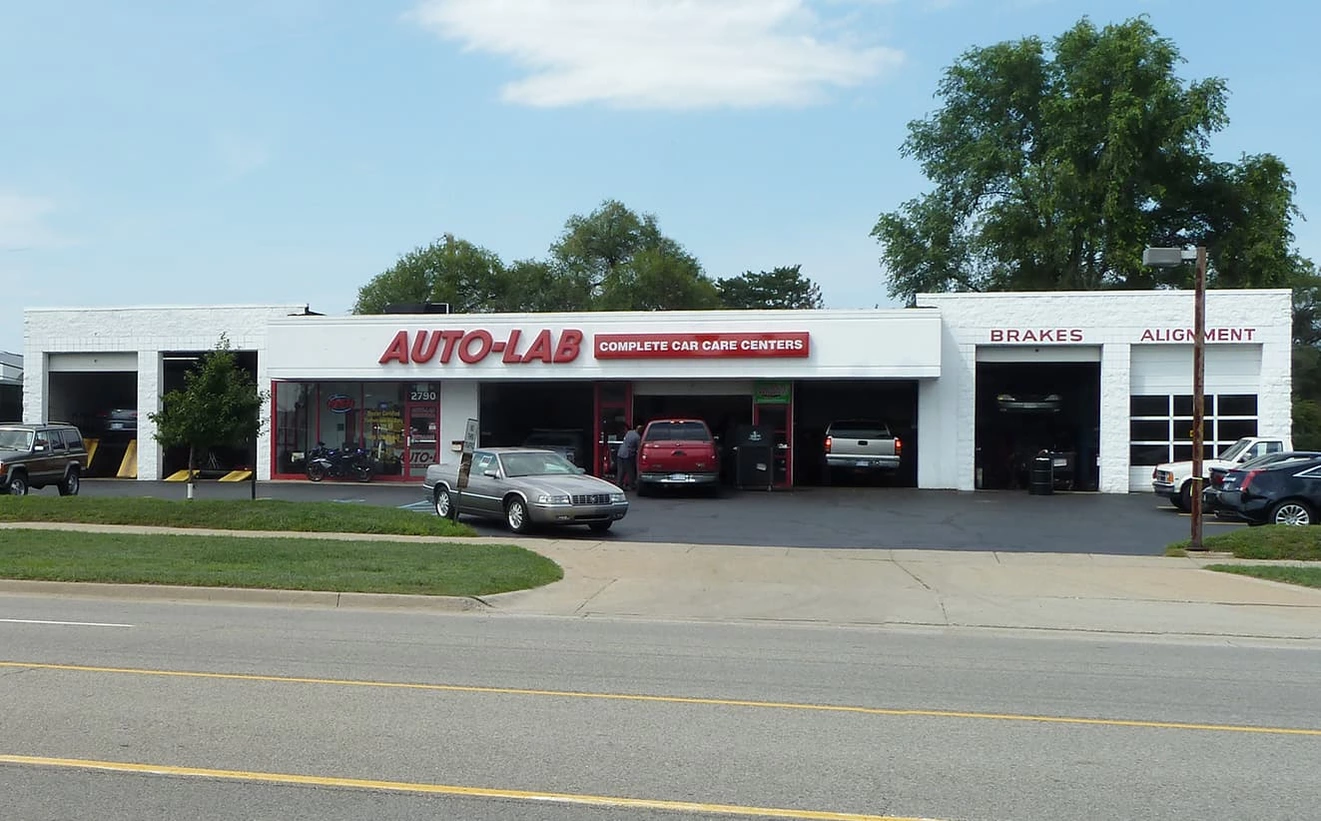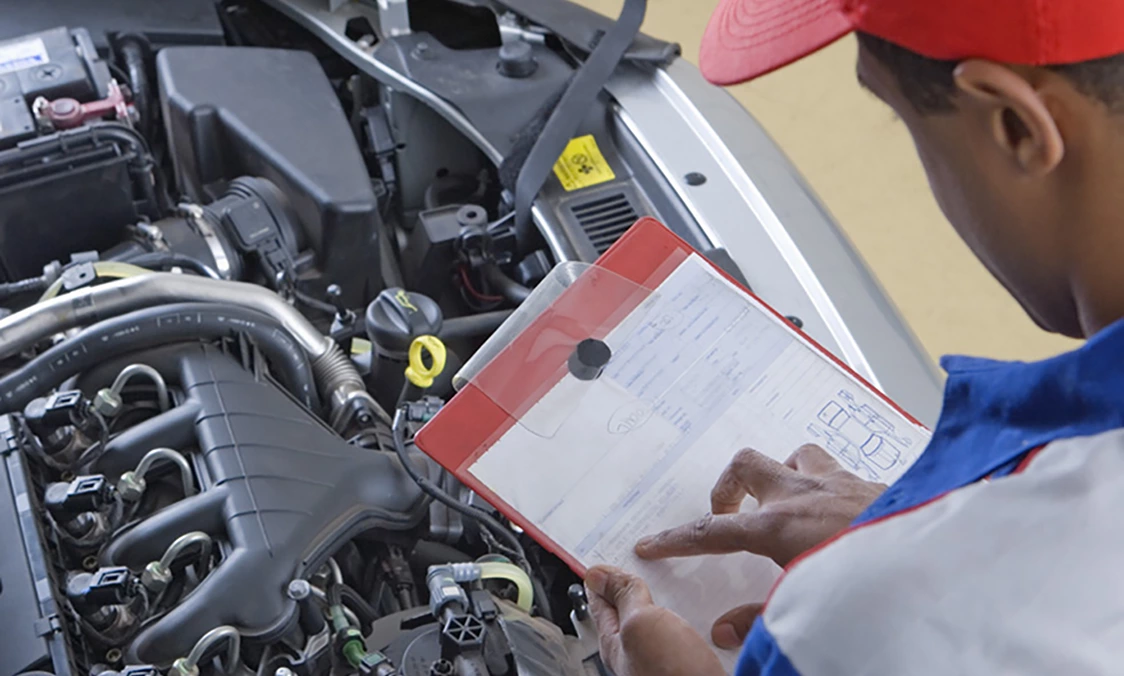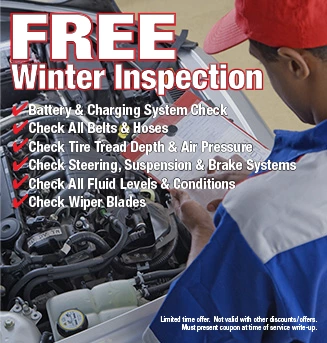1. Battery: Is your battery three years old or older? After three years, your battery may start to get weak and may leave you stranded in the cold. A battery can loose 60% of its cranking power at zero degrees fahrenheit. Have your battery tested to ensure it is free from corrosion and strong enough to start your car on a cold winter morning.
2. Wiper Blades: Do your wiper blades clear the windshield without streaking or skipping? They should be inspected for wear and tear. Most wiper blades should be replaced one a year. Make sure your windshield washer is full and also working properly to clear salt spray from the windshield.
3. Tune up: When was your car tuned up last? A vehicle should have the spark plugs replaced between 30,000 and 100,000 mile depending on the vehicle. Other components should be inspected at the same time such as spark plug wires, ignition coils and air filters. Your car may fail to start or run poorly if this service is over due. A properly tuned car can result in as much as 20% fuel savings.
4. Tires: Do your tires have proper tread to get you through the snow and ice? Stick a penny in the tire tread. If the tread only goes up to Lincoln’s hair line then its time for a new set of tires. Test the air pressure in your tires and make sure they are set to the manufactures specifications. Also make sure your spare tire is good and you have all the tools to change it including the wheel lock key.
5. Antifreeze: When was your antifreeze last changed? Flush and change your car’s cooling system when recommended by the manufacturer for maximum component life. If you have been adding water to your cooling system this will greatly reduce its freezing point and could cause damage to your engine or cooling system. Antifreeze will also start to corrode components when it gets old like your radiator and heater core which could be very costly to repair.
6. Timing Belt: Does your car have a timing belt? Manufactures recommend changing a timing belt between 60,000 and 105,000 miles. A broken timing belt will leave you stranded and could cause severe damage to your engine. If your belt does break and the engine is know as an “interference engine”, the pistons may collide with the valves and bend the valves in the engine and even damage the pistons which would cost a great sum of money to repair.
7. Motor oil: Are you using the correct oil for your car? Using the correct oil for your car will greatly extend the life of the engine, allow the engine to start faster and be more fuel efficient. Due to engineering tolerance and engine design, today’s cars require a lighter grade of oil such as 5w20 recommended by Honda and ford. The lighter grade of oil will reach the top of the engine faster to properly lubricate it in the cold weather . Consult your owners manual for the recommended oil.
8. Heater: Does your heater work properly? A good heater will put out about 145 degrees of heat to keep you warm and defrost your windshield properly. If your heater seems luke warm, you may have a restricted heater core or a bad thermostat not allowing your engine to get to the proper temperature. In addition, test all fan speeds to make sure they are working properly.
9. Locks and Latches: Are you prepared for a frozen lock or door latch? Spray your door locks and latches with a lock de-icer or a good penetratating oil before it gets cold. This will minimize your doors from freezing up. Keep a bottle a lock de-icer in your purse or jacket just incase this does happen. If you don’t have lock de-icer, a bucket of warm water poured over the lock will also unfreeze your door.
10. Emergency Kit: Keep a vehicle emergency kit in your trunk. The kit should contain a quality set of jumper cables, small shovel, flash light, gloves, flares and reflectors. A small bag of cat liter should be kept on-hand for traction. This should be placed around your tires should you get struck in the snow or ice.













